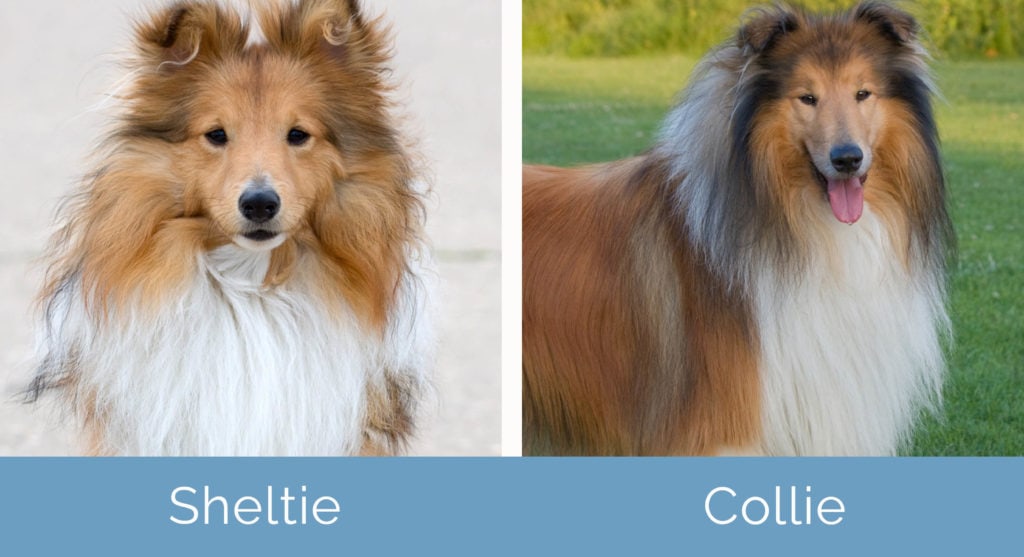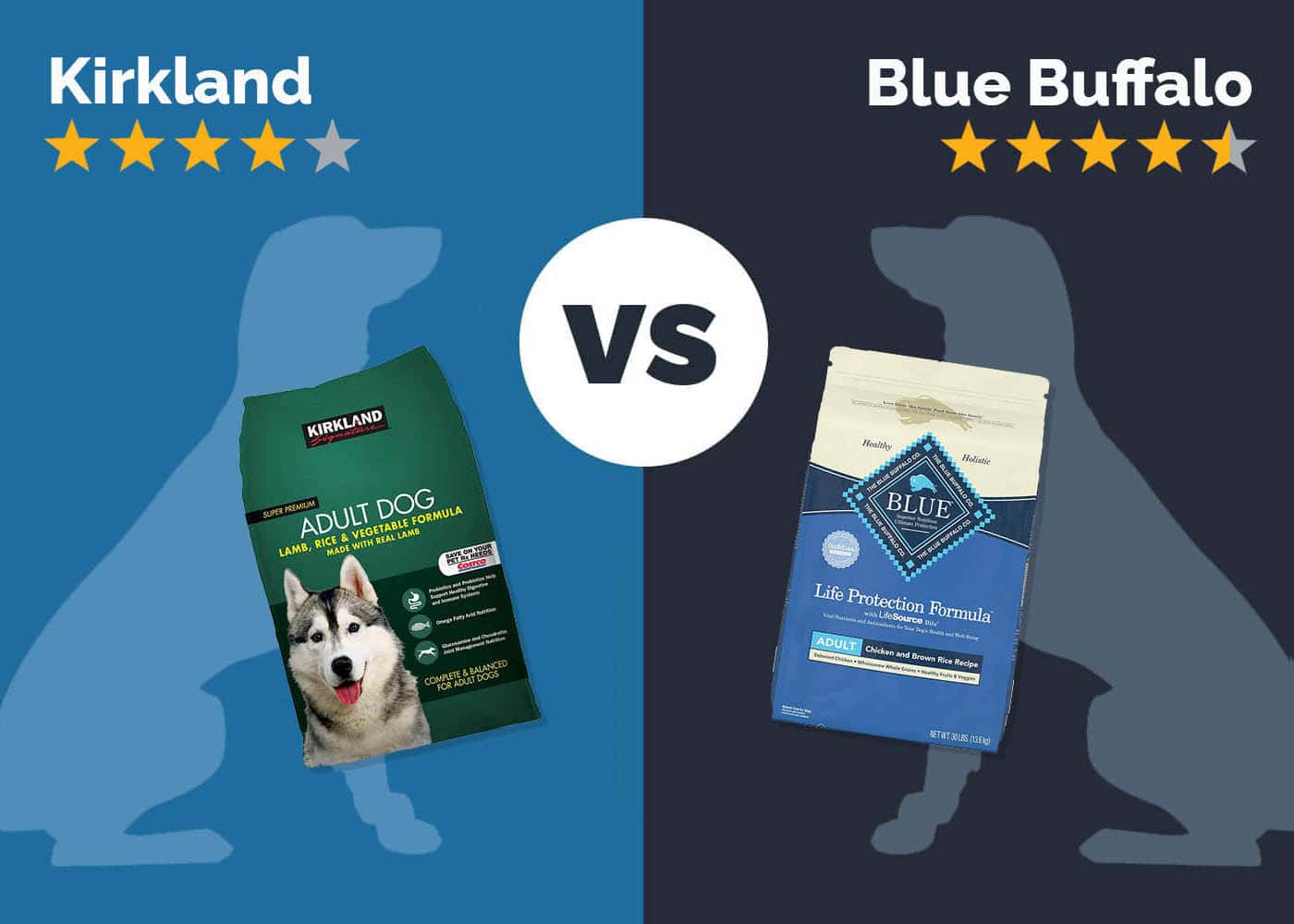Sheltie vs. Collie: Notable Differences (With Pictures)

Updated on
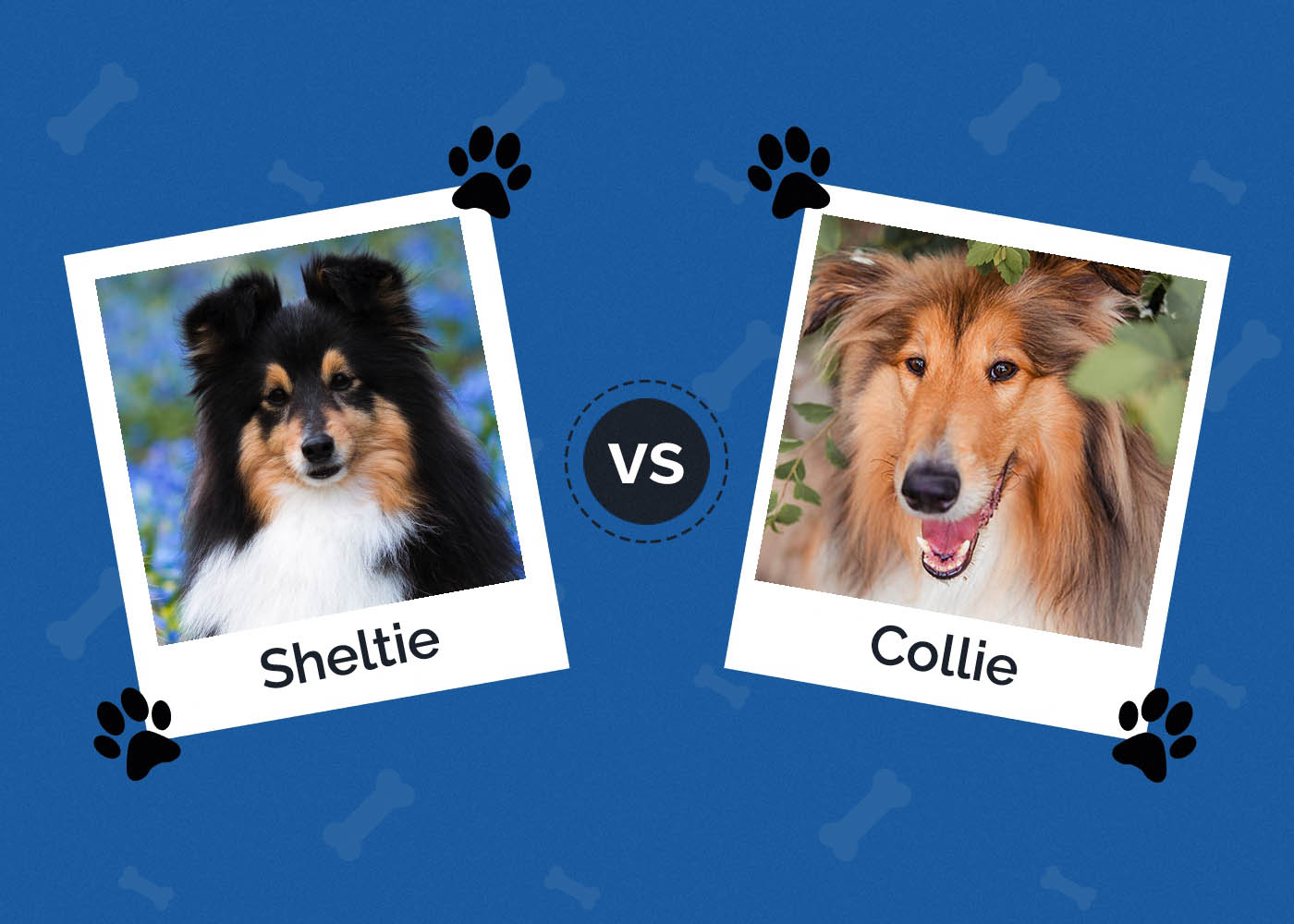
Click to Skip Ahead
There are so many dog breeds, and the list keeps growing. It can be hard to remember or recognize what sets some of them apart. At first glance, Shelties and Collies may look nearly alike, but how do you tell who’s who?
When it comes to two remarkably similar breeds, there are notable differences we can discuss. We assure you there’s more than meets the eye. These two dogs are closely related, but who came first? What are the details of each breed? Let’s find out together.
Visual Differences
At a Glance
- Average height (adult): 13–16 inches
- Average weight (adult): 16–20 pounds
- Lifespan: 12–13 years
- Exercise: 1 hour a day
- Grooming needs: Moderate
- Family-friendly: Yes
- Other pet-friendly: Yes
- Trainability: Intelligent, lively, receptive
- Average height (adult): 20–24 inches
- Average weight (adult): 45–75 pounds
- Lifespan: 10–16 years
- Exercise: 1 hour a day
- Grooming needs: Moderate
- Family-friendly: Yes
- Other pet-friendly: Often
- Trainability: Sometimes stubborn, gentle guidance
Sheltie Overview
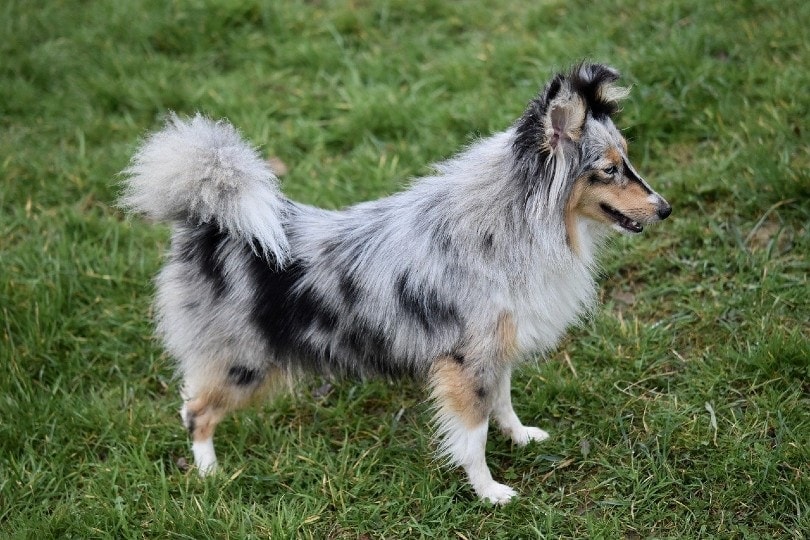
The Shetland Sheepdog, otherwise known as the Sheltie, is a herding dog from Scotland. Originally, they were called Shetland Collies, but this was later changed. The dogs are built for rugged terrain and long days at work. They have transitioned beautifully from workers to companions like their Collie ancestors.
Shelties came into being from crossing the Rough Collie with other island dogs at the time, including Spaniels. So, they tend to be smaller in stature and slightly more hyper than their Collie parent.
Personality/Character
Shelties are lively dogs full of character and sure to keep you on your toes. They make terrific playmates and enjoy active lifestyles. Because of their amiable nature, they also make excellent travel companions and dog park candidates.
They generally get along very well with other pets, especially when they grow up together. Their gentle nature makes them suitable in a home with small kids, but supervision is always paramount for child/dog interactions.
Exercise
Shelties don’t handle boredom well and require daily exercise. They need constant mental and physical stimulation. Since they are worker bees, it is deeply instilled in them to have a task to do.
Taking your Sheltie out for daily walks and other games that last at least 45 minutes every day is essential. However, upwards of 60 minutes is much better—if you can spare it.
Training
Shelties are loyal and eager to please. Training a Sheltie shouldn’t be difficult since they are brilliant dogs. However, having one on the more stubborn end of the spectrum might be a little more challenging.
They do very well with positive reinforcement training tactics, so make sure to keep things upbeat. Reward or praise good behavior for optimal results. Heavy discipline might cause nervousness and worsening behavior in Shelties, so be careful.
If you need help, Shelties are great obedience training candidates.

Health & Care
Shelties are generally healthy dogs. However, they can be prone to health conditions found in the breed. The best preventive measure is routine veterinary care.
- Allergies
- Hypothyroidism
- Legg-Perthes
- Canine hip dysplasia
- Progressive retinal atrophy
- Collie eye anomaly
Grooming
As you might have guessed, daily brushing is essential for the Sheltie. They have very long hair that can get tangled and matted quite quickly. You will need a firm brush that will penetrate their thick fur to get a smooth finish.
Because of their fur length, they benefit significantly from professional grooming every 6 weeks or so.
Suitable for:
Shelties are compatible with country and city living as long as they have the proper outlets for exercise. They usually get along with other pets and children.
Collie Overview
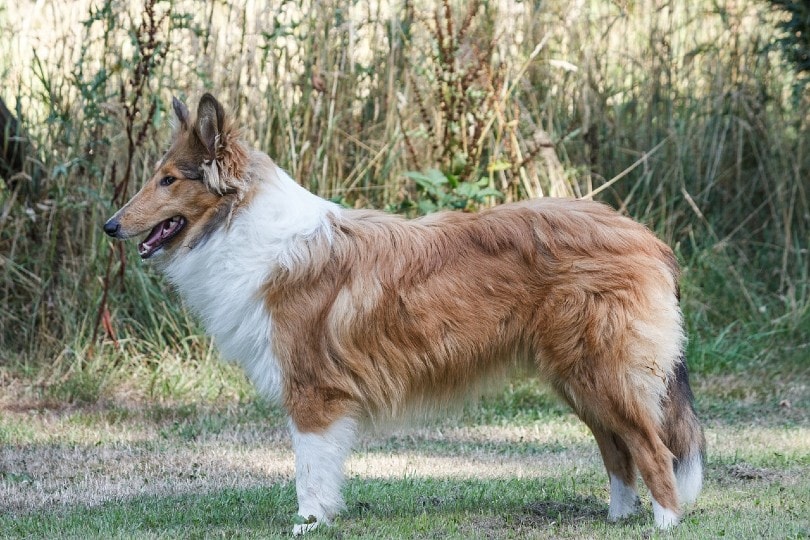
The Rough Collie is a long-coated herding breed from Scotland. Originally, they were workers but eventually became pets. The Collie became famous for playing Lassie from the adorable show in the 1950s and the films, and their popularity in the United States grew.
The Collie is a beloved family pet that has transitioned from herding to companionship. They have sweet, kind expressions and loving personalities. They also have favorable life spans and excellent dispositions.
Personality/Character
Collies are very gentle dogs. They have outgoing personalities and work well in most living situations. Because Collies are so social and kind, they make excellent additions to growing families. Also, with the proper training, they can make exceptional pets for older adults.
Despite the calm nature of Collies, they are pretty protective of their home. While they aren’t inherently aggressive dogs, they are very watchful.
Exercise
They require plenty of daily exercise, but not as much as their Border Collie cousins. As long as you ensure they get at least 45 to 60 minutes of exercise daily, you will have a happy, healthy dog.
Collies are quick, agile dogs that make great fetchers and chasers. Since they are very modest dogs, they play well with smaller children for exercise, too.
Training
Because Collies can be a bit stubborn, they might be difficult to train. However, if you have a solid rapport with your dog, they will aim to please you.
Since Collies are so intelligent, they pick up on basic commands very easily. It shouldn’t take too many repetitions before your colleague gets the hang of things.
However, if you think you have a particularly rambunctious Collie, you can always pay for behavioral training.
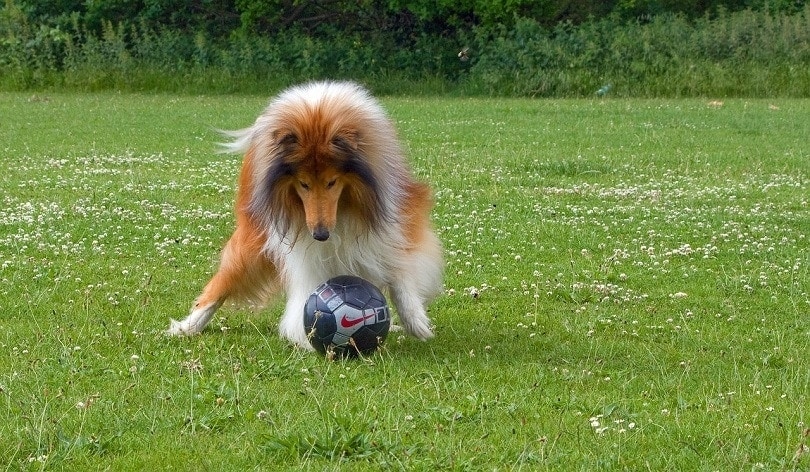
Health & Care
Collies are usually very hardy dogs that stay healthy for the duration of their lifetime. However, that doesn’t mean they can’t run into specific genetic health issues.
One way to eliminate health issues is to buy from a reputable breeder. Follow up with routine vet care to get ahead of anything that might transpire over time.
- Bacterial infections
- Hip dysplasia
- Allergies
- Epilepsy
- Grey Collie syndrome
Grooming
Your Collie and the rest of your house will benefit significantly from daily brushing. Collies shed quite a lot, as you can imagine, due to their coat texture and length.
On top of daily brushing, you must bathe them every 4 to 6 weeks to remove debris, dirt, and dead hair follicles altogether. Long-haired dogs trap more of these particles, so coat maintenance is essential.
You can follow up bath time with teeth brushing, nail trimming, and ear cleaning when necessary.
Suitable for:
Since Collies are large with higher energy levels, it can make it challenging for apartment living. However, dogs can work quite well in smaller settings once they mature. But most Collies prefer having space to roam. Just ensure they get their daily exercise, and they’ll make fantastic playmates and companions for just about any lifestyle.
Which Breed is Right For You?
When it comes to choosing between the Sheltie and Collie, it can be pretty tricky, considering how similar they are. However, remember that Shelties are a bit peppier while Collies are relaxed. Each still requires a good amount of exercise.
Having a smaller dog might work better for you if you live in a smaller space. However, Collies have slightly lower energy levels—so keep that in mind. Use your best judgment and select the type of dog that suits you best.
Featured Image Credit: (L) Lisjatina, Shutterstock | (R) OlgaOvcharenko, Shutterstock

